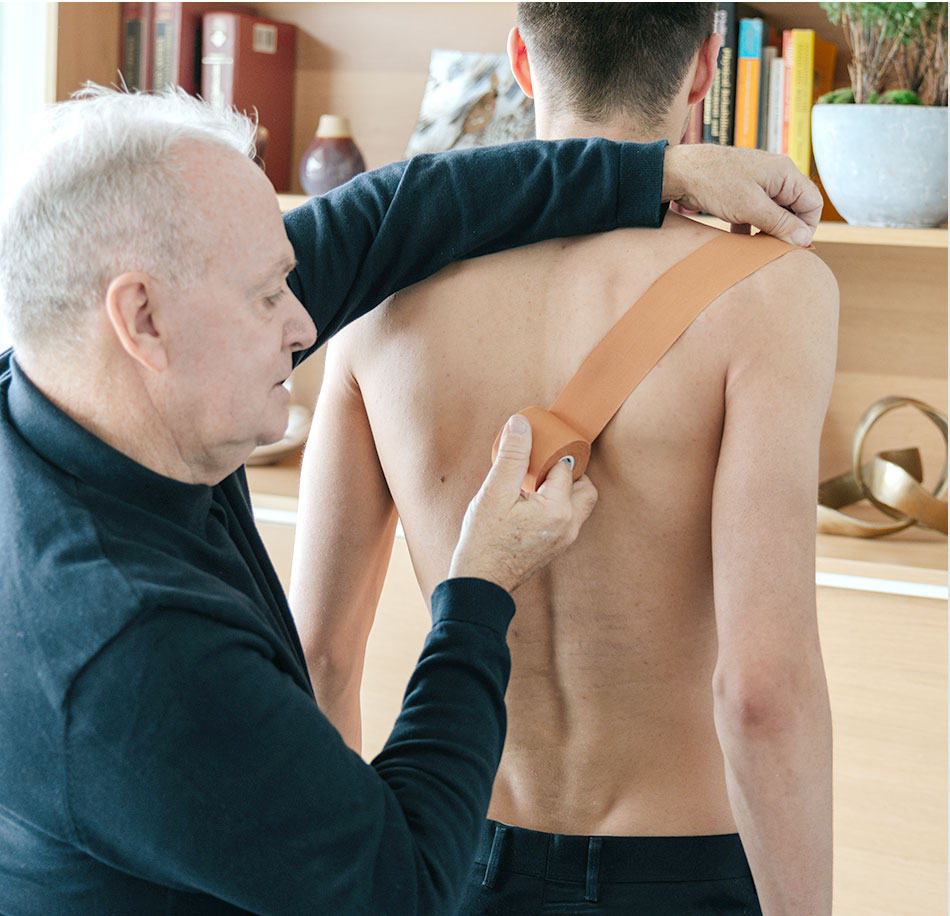
The rotator cuff are the tendons of four muscles that originate on the shoulder blade and come together above the shoulder joint. They attach the upper arm bone (humerus) to the shoulder blade.

The shoulder is a ball and socket joint and the rotator cuff are responsible for moving the arm up and rotating the arm at the shoulder. Another important role of the rotator cuff is to stabilise the ball in the socket at the shoulder. If the rotator cuff muscles are weak (because they are damaged), the ball of the shoulder migrates upwards as we lift the arm, causing impingement against the bony roof of the shoulder, causing further damage to the shoulder. This is the cause of the majority of shoulder pain.
Pain from the rotator cuff can be caused by tears in the tendons, degeneration of the tendons with wear and tear, or tendinopathy of the tendons (this used to be called tendonitis). You can think of tendinopathy as ‘stressed’ tendons. Tendinopathy often comes from overuse. An increase in overhead activities, such as a new painting job, or extra tennis practice.
In many cases, torn tendons begin by fraying. This can cause pain. Degeneration of a tendon occurs over time, with use. As the damage progresses, the tendon can completely tear. It might be through lifting a heavy object above the shoulder.
Tears of the rotator cuff tendons can be partial thickness tears, full thickness tears, or complete ruptures of the tendons. If there is a complete rupture of a rotator cuff tendon, it might cause that tendon to detach from the bone.
Because most rotator cuff tears are largely caused by the normal wear and tear that goes along with aging, people over 40 are at greater risk.
People who do repetitive lifting or overhead activities are also at risk for rotator cuff tears. Athletes are especially vulnerable to overuse tears, particularly tennis players and baseball pitchers. Painters, carpenters, and others who do overhead work also have a greater chance of tears.
Although overuse tears caused by sports activity or overhead work also occur in younger people, most tears in young adults are caused by a traumatic injury, like a fall.
A major issue that contributes to degenerative rotator cuff tears is repetitive stress.
Repeating the same shoulder motions at head level, or above, can stress your rotator cuff muscles and tendons. Baseball, tennis, rowing, and weightlifting are examples of activities that can put you at risk for overuse tears. Many jobs and routine chores can cause overuse tears, as well.
At Melbourne Shoulder Therapy we seek to gain an understanding of the issues that cause rotator cuff pain and formulate a sensible plan that will assist the rotator cuff to heal and get you back on track.
